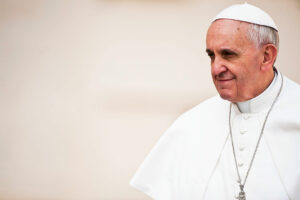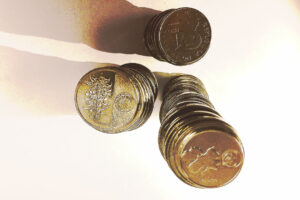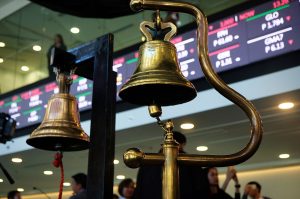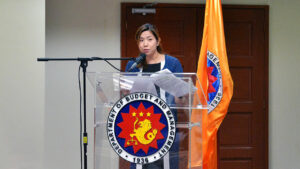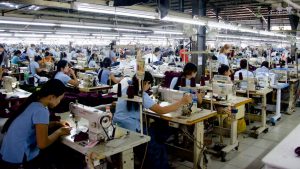(Part 3)
Bishop Broderick Pabillo, D.D., Bishop Socrates S. Pabillo, Most Rev. Edgardo S. Juanich, D.D. and Rev. Fr. Francis Mark G. Guzman were complying with their important obligation of teaching the Catholic faithful about the social doctrine of the Church related to sustaining mining in the recently convoked 2024 Palawan Stakeholders’ Congress on Mining and the Environment. Reading the contents of their respective presentations during the panel on “Stewardship of Creation,” it was obvious that they were just faithfully communicating to the participants the content of the epochal encyclical of Pope Francis entitled Laudato Si. To complete this series of articles on sustainable mining, I would like to summarize the Encyclical which goes beyond mining and covers the whole field of environmental sustainability. Today, we must protect the physical environment from the ravages caused by power plants using fossils-based fuels, waste from single-used plastic products, food waste, real estate projects that involve the reclamation of mangrove areas, and urbanization of forest and agricultural lands.
This summary comes from an article in America: A Jesuit Review from The Vatican Press Office entitled “Laudato Si: A ‘Map’: A concise guide of key points.”*
“The Encyclical takes its name from the invocation of St. Francis of Assisi, ‘Praise be to you, my Lord,’ in his Canticle of the Creatures. It reminds all of us that the earth, our common home ‘is like a sister with whom we share our life and a beautiful mother who opens her arms to embrace us.’ People have forgotten that ‘we ourselves are dust of the earth, our bodies are made up of her elements, we breathe her air and we receive life and refreshment from her waters.’”
Pope Francis addresses the Catholic faithful as well as all men and women of good will. He quotes St. John Paul II: “Christians in their turn realize that their responsibility within creation, and their duty towards nature and the Creator, are an essential part of their faith.”
“There are several main themes that run through the text that are addressed from a variety of different perspectives, thus traversing and unifying the text:
• the intimate relationship between the poor and the fragility of the planet,
• the conviction that everything in the world is connected,
• the critique of new paradigms and forms of power derived from technology,
• the call to seek other ways of understanding the economy and progress,
• the value proper to each creature,
• the human meaning of ecology,
• the need for forthright and honest debate,
• the serious responsibility of international and local policy,
• the throwaway culture and the proposal of a new lifestyle”
“The first chapter presents the most recent findings on the environment as a way to listen to the cry of creation.” First there is the issue of water: Pope Francis “‘states that access to safe drinkable water is a basic and universal human right, since it is essential to human survival and, as such, is a condition for the protection of other human rights.’ To deprive the poor of access to water means to ‘deny the right to a life consistent with their inalienable dignity.’”
Then there is the loss of biodiversity: “Each year sees the disappearance of thousands of plant and animal species which we will never know, which our children will never see, because they have been lost forever.” The Pope laments the decline in the quality of human life and the breakdown of society: “in the framework of an ethics of international relationships, the Encyclical indicates how a ‘true “ecological debt”’ exists in the world, above all that of the North with respect to the South. In the face of climate change, there are ‘differentiated responsibilities’ and that of the developed countries is greater.”
Recognizing that there is no consensus on how to address the serious problem of the deteriorating physical environment, the assault on our common home, “Pope Francis shows himself to be deeply affected by the ‘weak responses’ in the face of the drama besetting many peoples and populations. Even though positive examples are not lacking” (including in the Philippines), “‘complacency and a cheerful recklessness’ prevail. An adequate culture is still lacking as is a willingness to change lifestyle, production and consumption, but fortunately efforts are being made ‘to establish a legal framework which can set clear boundaries and ensure the protection of ecosystems.’”
There is a misconception about man being the absolute ruler of the universe who can do as he or she pleases with the creatures of this earth. “Human beings have the responsibility to till the earth, to ‘till and keep’ the garden of the world.” They should know that “‘the ultimate purpose of other creatures is not to be found in us. Rather, all creatures are moving forward, with us and through us, towards a common point of arrival, which is God.’
“That the human being is not the master of the universe ‘does not mean to put all living beings on the same level and to deprive human beings of their unique worth and the tremendous responsibility that this entails. Nor does it imply a divinization of the earth which would prevent us from working on it in its fragility.’” Clearly, virgin forests can be cut and mangroves can be removed if doing so would result in making livelihoods available to the poorest of the poor. As Pope Francis wrote in Laudato Si, “a sense of deep communion with the rest of nature cannot be real if our hearts lack tenderness, compassion and concern for our fellow human beings.”
But there can be “excessive anthropocentrism” or too much focus on the human being and his unlimited demands on nature. “Human beings no longer recognize their place with respect to the world and take on a self-centered position, focused exclusively on themselves and on their own power. This results in a ‘use and throw-away’ culture that justifies every type of waste, environmental or human, that treats both the other and nature as simple objects and leads to a myriad of forms of domination. It is this mentality that leads to exploiting children, abandoning the elderly, forcing others into slavery, practicing human trafficking and throwing away unborn babies because they do not correspond to what the parents want, of selling ‘blood diamonds’ and the pelts of animals in danger of extinction, and over-evaluating the market to regulate itself.”
Indeed moves toward more freedom of the market, ultimately based on the fundamental human right of enterprise, can achieve wonders in liberating millions from dehumanizing poverty, such as occurred in China during the leadership of Deng Xiao Peng. But the State has a previous role of endowing the poorest of the poor with the basic needs such as food, education and health that will enable them to actually participate in the free market. “In this light, the Encyclical addresses two crucial problems of today’s world. Above all work: ‘any approach to an integral ecology, by definition does not exclude human beings and needs to take account of the value of labor’ because ‘to stop investing in people, in order to gain greater short-term financial gain, is bad for society.’
“The second problem concerns the moral or ethical limit to scientific progress, with clear reference to Genetically Modified Organisms (GMOs).” The Pope recognizes that “‘in some regions the uses of GMOs has brought about economic growth which has helped to resolve problems, there remain, however, a number of significant difficulties which should not be underestimated,’ starting from the ‘productive land being concentrated in the hands of a few owners.’’ The State must be absolutely sure, however, that any move under the name of distributive and social justice to fragment the land for redistribution to small farmers must be accompanied by a very efficient machinery of endowing the small farmers with what they need to make their small holdings productive, such as farm to market roads, irrigation and post-harvest facilities, affordable credit, extensive services, etc. This precondition to a successful agrarian reform program was what was missing in our own attempts at land reform.
(To be continued.)
*www.americamagazine.org/issue/laudato-si-map
Bernardo M. Villegas has a Ph.D. in Economics from Harvard, is professor emeritus at the University of Asia and the Pacific, and a visiting professor at the IESE Business School in Barcelona, Spain. He was a member of the 1986 Constitutional Commission.

